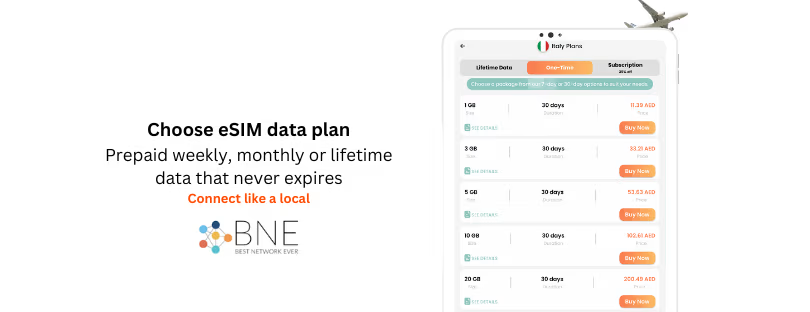
Bleisure Travel: The Art of Mixing Business with Leisure Like a Pro
Have you ever found yourself on a work trip thinking, I wish I had more time to explore this place? Well, that’s where bleisure travel comes in—the perfect blend of business and leisure.
Gone are the days when work trips meant boring hotel rooms, endless meetings, and a flight home before you even got a chance to enjoy the city. More professionals are embracing the idea of extending their business trips for a little personal time, whether it’s to explore a new city, try local food, or just unwind before heading back to reality.
If you’re curious about how to make bleisure work for you, how to convince your boss (or yourself) that it’s a great idea, and what destinations work best, keep reading. We’re about to break it all down in the most practical, no-nonsense way.
What is Bleisure Travel Anyway?
Bleisure travel is exactly what it sounds like: combining business travel with leisure time. Instead of flying in for a conference, sitting in meetings all day, and rushing back to the airport, you tack on a couple of extra days to explore the city.
Maybe you schedule your return flight for Sunday instead of Friday so you can spend the weekend sightseeing. Or, if your meetings don’t start until Tuesday, you fly in early and use Monday to explore. It’s about being strategic and turning a necessary work trip into a mini adventure.
Why Bleisure Travel is the Ultimate Work Perk
1. Makes Business Travel Less Exhausting
Let’s be real—traveling for work can be tiring. Early flights, back-to-back meetings, and living out of a suitcase aren’t exactly relaxing. But adding leisure time into the mix gives you a chance to unwind, reset, and actually enjoy being in a different place.
2. More Cost-Effective Travel
One of the biggest perks of bleisure travel? Your company is already covering part of the trip. Your flights and work-related expenses are paid for, so all you need to cover are the extra days you stay, plus your personal activities. That’s a huge financial win, especially if you’re exploring a destination that would normally be pricey.
3. Work-Life Balance (For Real This Time)
We hear about work-life balance all the time, but in practice, it’s hard to achieve. Bleisure travel is a practical way to actually integrate a little bit of personal time into your work schedule. Instead of feeling like you’re constantly on the grind, you get a chance to relax and recharge.
4. Maximizing Your PTO Without Using It
Want to travel more but don’t have enough vacation days? Bleisure travel is your secret weapon. By extending a work trip by just a day or two, you can explore new places without dipping into your PTO—a win-win situation.
How to Make Bleisure Travel Work for You
Not every job or work trip is suited for bleisure travel, but if you’re strategic about it, you can make it happen. Here’s how:
1. Choose the Right Destination
If your work trip takes you to a major city or a place with lots to do, extending your stay makes total sense. Think New York, Paris, Tokyo, or even smaller destinations with great cultural experiences. If your business trip is to a remote office park in the middle of nowhere… maybe not.
2. Plan Your Itinerary Wisely
Your meetings come first (obviously), so plan your leisure time around them. If you’re working 9-5, you might still have evenings free to explore. If you can extend your trip, think about how you want to use that extra time—do you want to relax, sightsee, or have unique experiences?
3. Book Accommodations Strategically
Some companies will let you stay at the same hotel for the entire trip, while others require you to switch once the business portion is over. If you have flexibility, consider moving to a boutique hotel or an Airbnb to get a different vibe from the city.
4. Blend Work and Play Smoothly
Not every trip allows for strict separation between business and leisure, so find ways to mix the two. Maybe that means setting up meetings at a trendy coffee shop or taking a client out to a restaurant you wanted to try anyway. Get creative with it.
Best Bleisure Travel Destinations
If you get to pick your work trips (or have some influence over them), these are some of the best cities for bleisure travel:
1. New York City, USA
Perfect for business, perfect for fun. Whether you’re visiting for meetings in Manhattan or a tech conference in Brooklyn, NYC has endless things to do—Broadway shows, museums, rooftop bars, and world-class food.
2. London, UK
A global business hub and a dream for history lovers. Knock out your meetings in the City of London, then spend a few extra days exploring Buckingham Palace, taking day trips to the countryside, or just enjoying a proper afternoon tea.
3. Tokyo, Japan
Japan has mastered the balance of business and leisure. After your work commitments, explore Shibuya, visit temples in Kyoto, or enjoy sushi at Tsukiji Market. Plus, the efficiency of Japanese transport makes it easy to maximize your time.
4. Barcelona, Spain
A work meeting in the morning, beach time in the afternoon? Yes, please. Barcelona has an amazing blend of business infrastructure and a laid-back Mediterranean lifestyle. Gaudí’s architecture, tapas, and a vibrant nightlife scene make it a perfect bleisure city.
5. Singapore
A powerhouse for business and a fantastic place for leisure. Whether it’s rooftop bars, hawker center food, or visiting Gardens by the Bay, Singapore is a prime bleisure destination with tons of experiences packed into a small area.
 How to Get Your Boss on Board with Bleisure Travel
How to Get Your Boss on Board with Bleisure Travel
Some workplaces encourage bleisure travel, while others are a bit hesitant. If you need to make a case for it, here’s how:
- Frame it as a productivity boost – Explain how an extra day to relax can make you more focused and refreshed when you return to work.
- Ensure zero interference with work – Make it clear that your personal time won’t affect business obligations.
- Show that it’s cost-neutral – If your company isn’t paying for the extra time, there’s really no downside for them.
- Use industry examples – More companies are embracing flexible travel policies; showing that competitors allow it might help.
Final Thoughts: Make Bleisure Travel Work for You
Bleisure travel isn’t just a trend—it’s a smarter way to travel for work. It makes business trips more enjoyable, helps maximize personal time, and can even improve overall job satisfaction.
So the next time you’re planning a work trip, ask yourself: Why not stay an extra day? Whether it’s sightseeing, great food, or just a little relaxation, turning a business trip into a mini-vacation might just be the smartest move you make.
Are you a fan of bleisure travel? Drop a comment with your favorite destination or a trip where you made the most of work and play!











